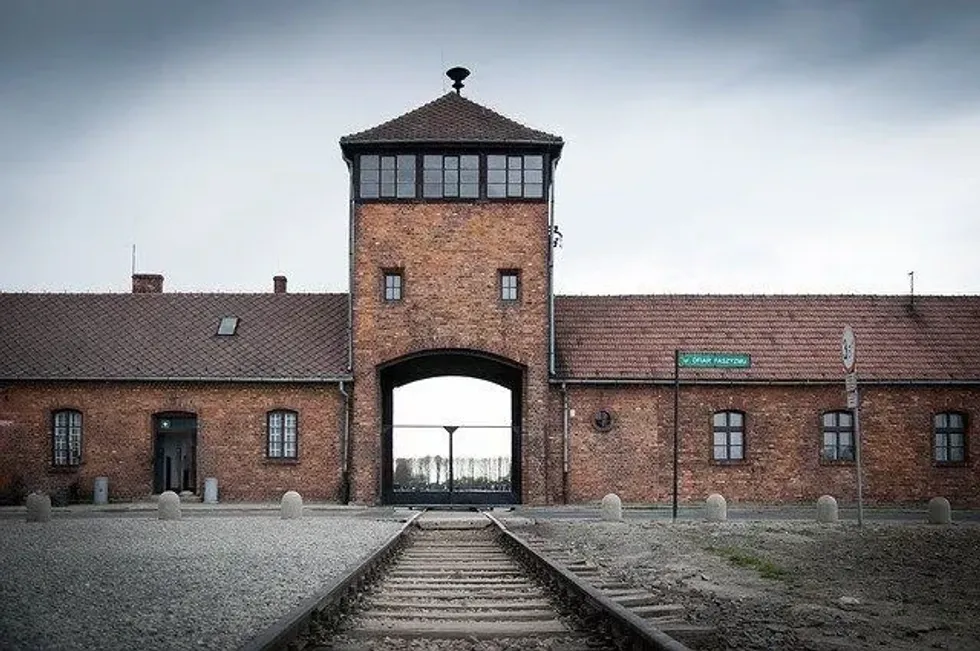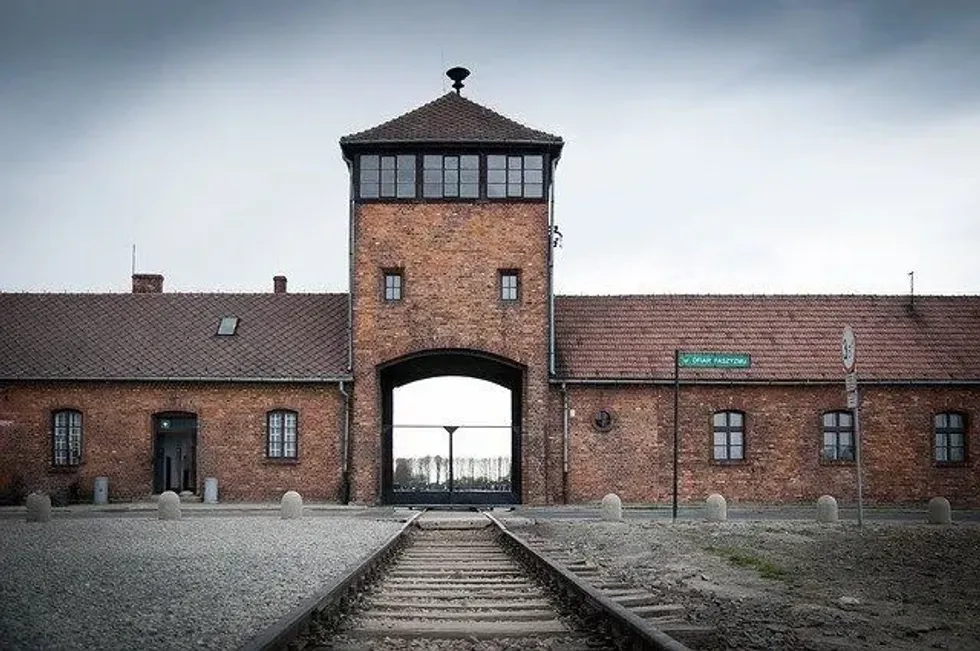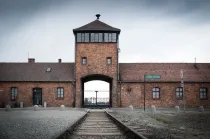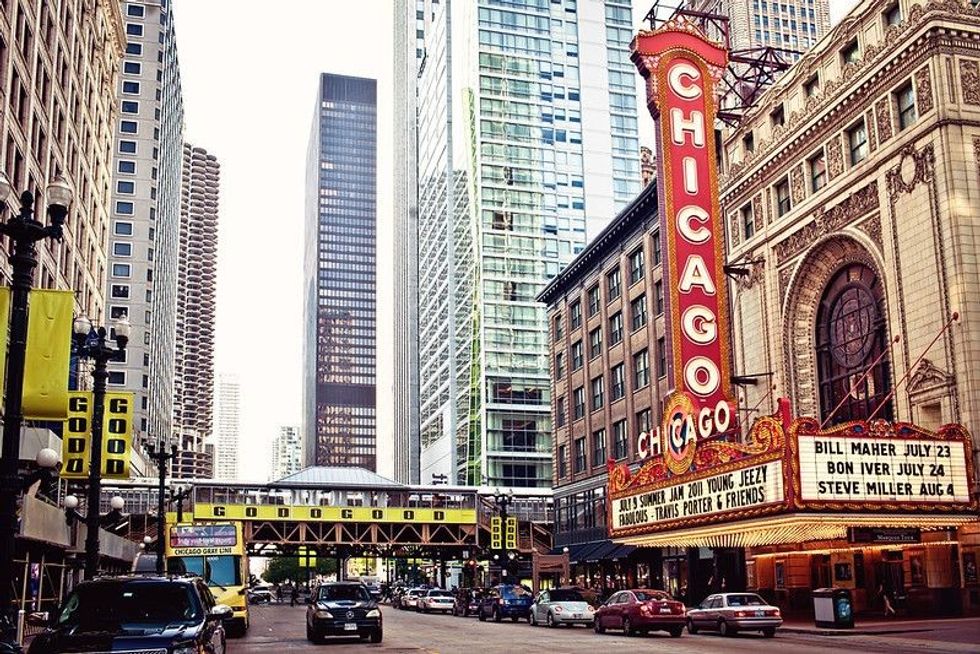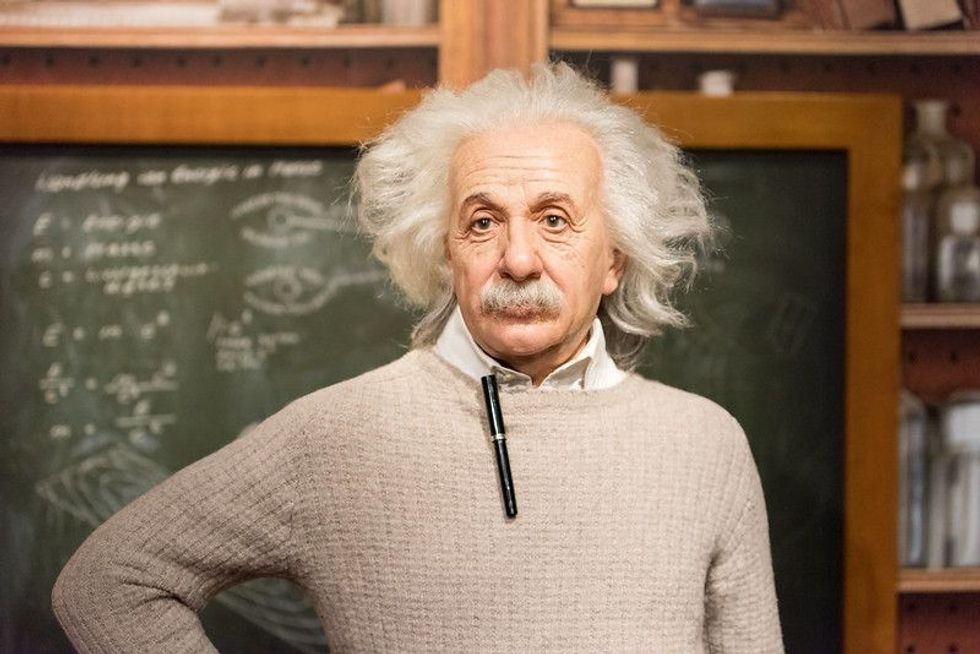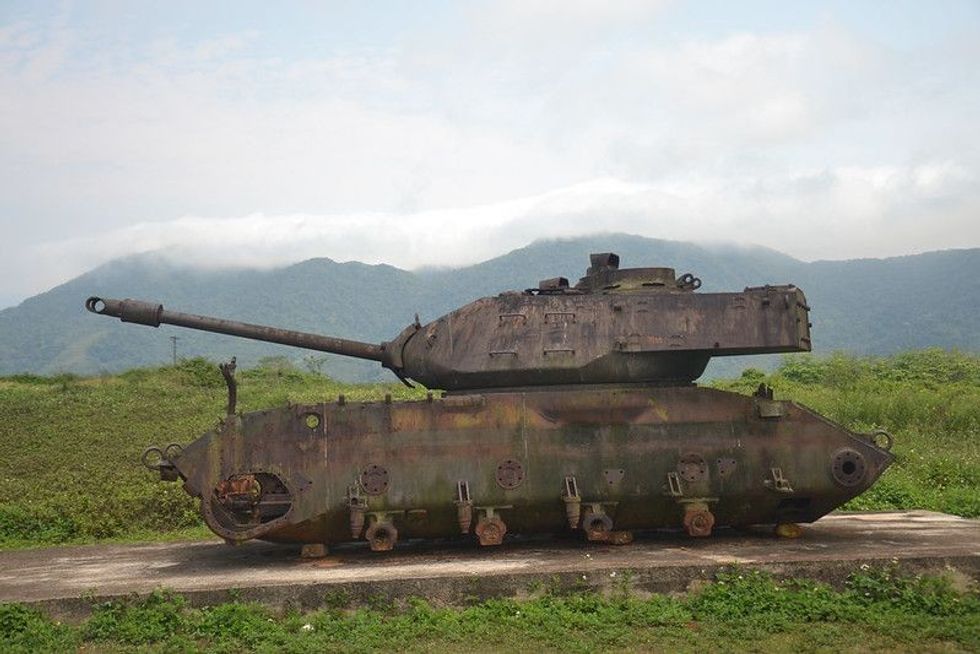Brilliant 1943 Facts That Everyone Should Know About

The year 1943 is one of the most important years that shaped the future of the world.
1943 has its historical importance because many events that would contribute to the end of World War II would occur in the year.
The bombing of Hamburg by the Allied Powers, the Warsaw Ghetto uprising were some of the most important events to take place in the year. Both the Allied Powers and the Axis Powers spared no men in the fight for the victory of their own ideals.
America, Great Britain, France, and the Russian Empire were the major powers that fought against the Axis Powers made up of Hitler's Nazi Germany, Italy, and Japan, the Allied powers also rallied against the Central Powers of Austria-Hungary, Turkey, and Germany.
Throughout 1943 the world kept changing as decisions were made in favor of ending the German threat and in doing so, events like the Bengal famine of 1943 took center stage because of Britain's reluctance to help its colonies during World War II. 1943 also saw some great inventions in the form of scuba-diving gear, corning glass, and IKEA!
If you like this article about 1943 facts, be sure to check out articles about 1944 facts and 1910 facts too!
World War II 1943
The events of 1943 played a huge role in the progression of World War II, as forces from all around the world came together to defeat Nazi Germany and its allies.
Americans, French, British, and Soviet soldiers alongside other countries came together to defeat the German soldiers that invaded other countries. On January 13, 1943, Adolf Hitler, the Chancellor of Nazi Germany, declared total war against the Allied Powers.
Soviet forces, on January 19, announced the long siege of Leningrad was broken by Nazi Germany as they opened a thin land passageway.
On April 19, the Warsaw Ghetto Uprising placed Nazi Germany in a bad light after they killed around 15,000 civilians. The Polish Jews refused to yield the Warsaw Ghetto to SS German officer Jürgen Stroop, leading to the destruction of the village.
The Union of Polish Patriots (ZPP) was founded in June 1943, the organization had around 100,000 members, which consisted of war refugees and Soviet deportees. The party provided relief programs for the Polish community in the Soviet Union (polish military).
The Third Moscow Conference held from October 18 to November 11, was the first event featuring ministers of foreign countries coming together to discuss global matters. The meeting saw the conception of ideas of how to end the war against the Axis powers and Germany.
They worked with the Soviet embassy in the meetings and proceeded to cooperate and collaborate to defeat a common enemy.
Operation Torch took place from November 8 to November 16, 1942, took place in French North Africa (French Morocco) when the Allied Powers invaded the region during World War II. Operation Torch was an important event that helped the British in securing victory in North Africa.
The American armed forces fought Nazi Germany in a controlled environment. This operation was the first time US troops would be massively involved in the North African-European Theatre.
On August 29, during World War II, Germany proceeded to terminate the Danish government after disturbances and strikes ordered by the German authorities were refused to be carried out by the Danish population.
The Polish population also refused to follow Hitler's order which asked them to hand over the Free City of Danzig on August 29. The Pentagon, the headquarters of the US Department of Defense was opened on January 15, 1943. The building served as the center of decisions that would affect the events of the second world war.
The United Kingdom and the United States met to discuss the invasion of France during World War II. On August 2, 1943, a Japanese destroyer ship under the command of future president John F. Kennedy was sunk.
US General Dwight D. Eisenhower was named the supreme Allied commander of all forces on June 25, 1943, he would also be in command of the Normandy landings on the Omaha beach on June 6, 1944, which is widely remembered for the famous battle of D-Day, as Operation Neptune was known.
The Allied invasion of Sicily is another important part of history that helped in shaping World War II. Mainland Italy was invaded by the Allied forces consisting of American and British troops on September 3.
The Italian government abdicated its power as it was already in discussions of surrendering since the removal of Benito Mussolini. Italy's government then declared war on Germany and joined the Allies to free the country of any remaining German occupants in return for a lighter punishment.
However, the story did not end with Italy surrendering as Benito Mussolini was freed by the German troops who later helped him establish a new power in the north. Following the events of 1943, Rome was finally liberated on June 4, 1943.
Germany forced caved in and surrender Italy completely until May 2, 1945, months before the end of World War II. Italian troops and German Africa Korps in North Africa also surrendered to the Allied forces.
More than 2,000 citizens of Budapest were sent to Concentration Camps. The Holocaust in Hungary was the final piece in the mass murder of the Jewish population at the hands of Nazi Germany and the German forces.
On May 17, German dams were raided by the No. 617 Squadron RAF on May 17, 1943. The event was a part of Operation Chastise which was carried out in two days.
On July 24, the Americans and British caused the death of 42,000 German civilians when they bombed the city of Hamburg. The Battle of Stalingrad is perhaps one of the most amazing tales ever to be told in the history of wars when soviet forces emerged victorious over the Germans.
Hitler saw a propaganda victory in conquering the city that bore the name of Joseph Stalin, the Soviet Leader.
Hitler's plan was to remove any traces of Soviet forces in the south and to secure its resources to go on the offensive. On June 28, 1943, the plans took off with German victories.
Germany's attempt to invade the Soviet Union began on June 22, 1941, and ended on December 5, 1941.
The Battle of Stalingrad started on August 23, 1942, and ended on February 2, 1943. The battle is known as the most ferocious and most comprehensive event of World War II, as it took the lives of over 1.5 million over its course.
Germany opted for Stalingrad as controlling the city would help them gain easier control over Russia's southern part. Between November 19 and November 23, 1942, Operation Uranus was put into effect as a counter-measure against the German troops. The battle ended with Soviet armies enclosing the last remaining German armies and the surrender of German commanding officer Friedrich Paulus.
The Battle of Guadalcanal on the Solomon Islands was also an important factor in ending World War II, as the Allies took control of the island after it was taken over by the Japanese in May of 1942. The fight for the island began in August 1942 and concluded with an Allied victory.
Japanese troops were heavily affected because of the large number of deaths and ships lost for both the Allied Powers and the Axis Powers.
The Battle of Guadalcanal came to an end in February 1943. The battle was the first instance of the Allied forces making an offensive movement in the Pacific against Japan.
Cost of Living 1943
The cost of living in 1943 was comparatively better than that of the years 1941 and 1942 as the world economy was experiencing a massive downfall because of the events of World War II.
Inflation was an issue but it was controlled as the year 1943 contributed to some events that would help end World War II.
Popular Culture 1943
The pop-culture history of 1943 has seen bizarre and shocking events that took the world by surprise!
The chairman of IBM, Thomas Watson, was quoted saying 'I think there is a world market for maybe five computers' in 1943! He had no idea how famous computers who become in the future!
Corning Glass Works and Dow Chemical came together to create silicon materials that were based on the work of James Franklin Hyde who is known as the 'Father of Silicones'.
The first commercially triumphant scuba-diving equipment based on open circuit type, the Aqua Lung, was invented by French engineers Jacques-Yves Cousteau and Émile Gagnan between 1942 and 1943.
Princess Juliana of the Netherlands gave birth to her third child, Margriet, on January 19, 1943, her hospital room was declared extraterritorial by Canada's Governor-General so that the new child could still be viable to succession.
In 1943, Donald Duck appeared in a short titled 'Der Fuehrer’s Face' as a reluctant factory worker in Nazi Germany, and the cartoon was used to mock the Nazis. The American football teams The Philadelphia Eagles and The Pittsburgh Steelers merged to form the Steagles due to the player shortage induced by World War II.
'Oklahoma!' one of the most popular and longest-running Broadway musicals made its debut on March 31, 1943.
Richard Rodgers and Oscar Hammerstein II created the show and the musical ran for a record-breaking 15 years and was performed 2,212 times! IKEA, the globally popular home furnishing company, was established on July 28, 1943, in a small Swedish mall in Älmhult, Sweden by Ingvar Kamprad.
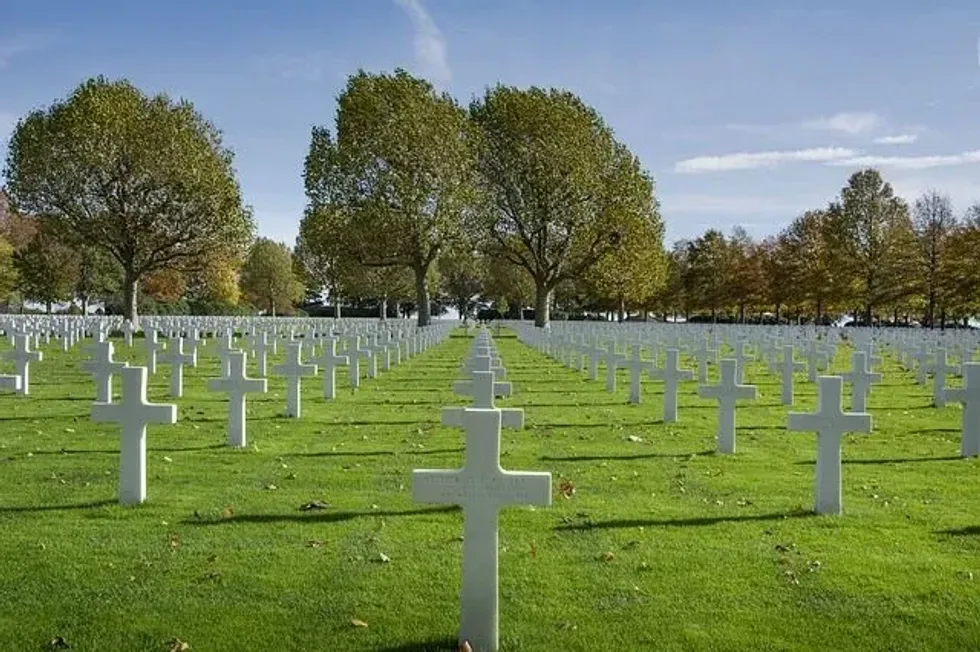
Major World Political Leaders 1943
1943 was a historical year in its own rights with many wars being fought throughout the year under the leadership of prime ministers and presidents who governed their countries.
Some of the major political leaders in 1943 were Winston Churchill, the Prime Minister of UK; Franklin D. Roosevelt, the President of the United States; Field Marshal Jan Christiaan Smuts, Prime Minister of South Africa; Joseph Stalin, the General Secretary of the Central Committee of Soviet Union/Russia; Manuel Ávila Camacho, President of Mexico; Hideki Tojo, Prime Minister of Japan; Benito Mussolini, Prime Minister of Italy; Adolf Hitler, Chancellor of Germany; William Lyon Mackenzie King, Prime Minister of Canada; John Curtin, Prime Minister of Australia and Getúlio Vargas, President of Brazil.
Born This Year
Some of the most popular personalities that were born in the year 1943.
It includes Sadako Sasaki, Japanese atomic bomb victim, German Politician Peter Struck, British actor Michale Palin, German footballer Wolfgang Overath, British actor Sir Ben Kingsley, American actress Sharon Tate, Former UK Prime Minister John Major, Former President of Iran Mohammad Khatami, Queen of Sweden Silvia Smmerlath, legendary actor Robert De Niro, Former President of Zambia, Frederick Chiluba, Canadian scientist Ralph Steinman.
Did You Know...
Isoroku Yamamoto, a Japanese admiral, died on April 18, 1943, during World War II, when his fight plans were discovered by the American codebreakers and the American forces shot down his plane.
James Stewart was a World War II and Vietnam War veteran, making him the highest-ranking actor in all of military history. 74 men lost their lives when the Smith Mine #3 exploded in Bearcreek, Montana on February 27.
In 1943, Joseph Stalin proposed the idea of killing 50,000-100,000 of the German forces including German soldiers and a handful of German officers to prevent the uprising of another war and similar war crimes. Winston Churchill was livid with the idea and Roosevelt thought Stalin was joking.
Yakov Dzhugashvili, son of Joseph Stalin, was apprehended by Germans troops during the events of World War II. He later died in 1943, after Stalin refused to exchange the freedom of his son with that of a German soldier.
The world record for the fasted change in temperature occurred on January 22, 1943, when the Chinook wind, increased the temperature of Spearfish, South Dakota from -4-45 F (-20-7.2 C) in a record two minutes!
Carnegie Hall in New York City hosted Duke for the first time ever in 1943! And did you know that the Bengal famine of 1943 took an estimated one to three million lives or even more.
India, still a British colony then, saw widescale destruction of rice by the British, because the British were concerned with the increase of Japanese presence in Burma, and wanted to starve them in case they managed to invade Bengal successfully.
This eventually led to food hoarding by the local population contributing to the famine getting worse. Winston Churchill, then British Prime Minister, defused to delve into the situation claiming that World War II needed more focus and ignored the worsening situation.
The month of October saw signs of relief as the military handled the relief efforts and by November, shipments of wheat and barley were delivered to the region.
A plane crash in Lisbon, Portugal, took the lives of 23 passengers and singer Jane Froma was among the 15 survivors. Poon Lim, a Chinese steward is found off the Brazilian coast by a fisherman family. Poon Lim had been adrift for 133 days and was finally found on April 27.
On April 27, Polish intelligence officer Witold Pilecki managed to escape from the Auschwitz concentration camp was would go on bringing attention to the Holocaust.
On August 25 the entirety of Southeast Asia was put under the command of Lord Louise Mountbatten. Ignacio Anaya García invented the popular snack Nacho in 1943!
The FBI monitored Frank Sinatra for over 40 years after former FBI Director J. Edgar Hoover received a letter that Frank Sinatra's popularity was being used as a way of preparing the acceptance of a new 'Hitler'.
On December 30, 1943, Subhash Chandra Bose, an important member of the fight for Indian independence against the British raised the flag of Indian independence in Port Blair.
Edward Adelbert Doisy and Henrik Dam were awarded the Nobel Prize in Physiology or Medicine in the year 1943 for their work in the development of Vitamin K.
November 22, 1943, is the Lebanese Independence Day. To solve the religion problem in the country, Lebanon decided to distribute the top three government offices to recognized religious groups.
Vesta Stoudt provided the concept of duct tape and wrote a letter to President Roosevelt describing her idea of using cloth-based tape that would help in packing ammunition properly.
Leonardo da Vinci's famous painting 'The Last Supper' was almost destroyed when the Santa Maria Delle Grazie church was the target of a bomb drop.
The 'Zoot Suit Riot' took place when US servicemen along with police escorts gathered in East Los Angeles to strip and beat down Latino men for their flamboyant suits during the somber war era.
The US Mint started producing steel pennies and stopped using copper because copper was a crucial material in shell casings.
Mohandas Gandhi held a hunger strike to protest his imprisonment. The strike lasted from February 10 to March 3. And other interesting fact is that the United States banned sliced bread for a short period in 1943 to conserve ration for World War II.
Here at Kidadl, we have carefully created lots of interesting family-friendly facts for everyone to enjoy! If you liked our suggestions for 1943 facts then why not take a look at 1978 facts, or 1988 facts.
We Want Your Photos!
More for You
Bachelor of Arts specializing in English, Master of Arts specializing in English

Rajnandini RoychoudhuryBachelor of Arts specializing in English, Master of Arts specializing in English
With a Master of Arts in English, Rajnandini has pursued her passion for the arts and has become an experienced content writer. She has worked with companies such as Writer's Zone and has had her writing skills recognized by publications such as The Telegraph. Rajnandini is also trilingual and enjoys various hobbies such as music, movies, travel, philanthropy, writing her blog, and reading classic British literature.
Postgraduate Diploma in Management

Sakshi RaturiPostgraduate Diploma in Management
Sakshi has experience in marketing strategy, social media planning, and recruiting industry experts for capstone projects, she has displayed a commitment to enhancing their skills and knowledge. She has won multiple awards, including a Certificate of Appreciation for Creative Writing and a Certificate of Merit for Immaculate Turut, and is always seeking new opportunities to grow and develop.
Disclaimer
1) Kidadl is independent and to make our service free to you the reader we are supported by advertising. We hope you love our recommendations for products and services! What we suggest is selected independently by the Kidadl team. If you purchase using the Buy Now button we may earn a small commission. This does not influence our choices. Prices are correct and items are available at the time the article was published but we cannot guarantee that on the time of reading. Please note that Kidadl is a participant in the Amazon Services LLC Associates Program, an affiliate advertising program designed to provide a means for sites to earn advertising fees by advertising and linking to Amazon. We also link to other websites, but are not responsible for their content.
2) At Kidadl, we strive to recommend the very best activities and events. We will always aim to give you accurate information at the date of publication - however, information does change, so it’s important you do your own research, double-check and make the decision that is right for your family. We recognise that not all activities and ideas are appropriate for all children and families or in all circumstances. Our recommended activities are based on age but these are a guide. We recommend that these ideas are used as inspiration, that ideas are undertaken with appropriate adult supervision, and that each adult uses their own discretion and knowledge of their children to consider the safety and suitability. Kidadl cannot accept liability for the execution of these ideas, and parental supervision is advised at all times, as safety is paramount. Anyone using the information provided by Kidadl does so at their own risk and we can not accept liability if things go wrong.
3) Because we are an educational resource, we have quotes and facts about a range of historical and modern figures. We do not endorse the actions of or rhetoric of all the people included in these collections, but we think they are important for growing minds to learn about under the guidance of parents or guardians.
